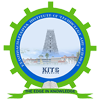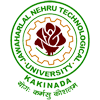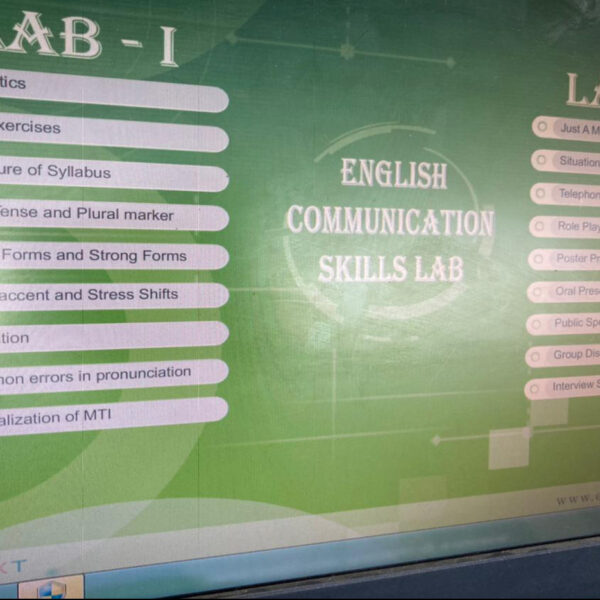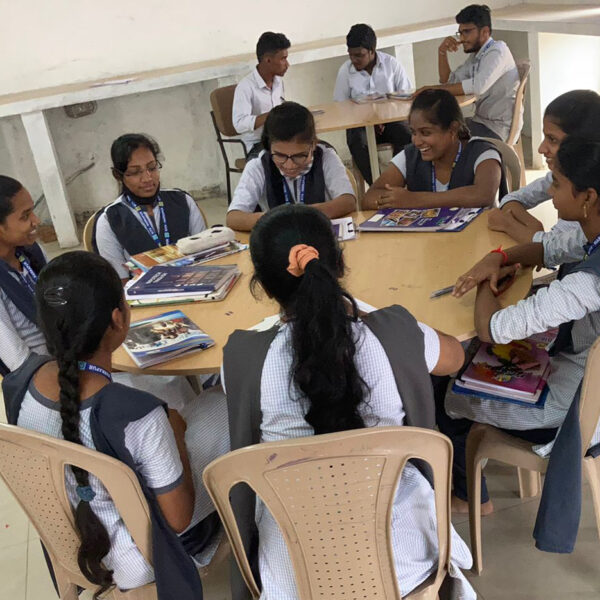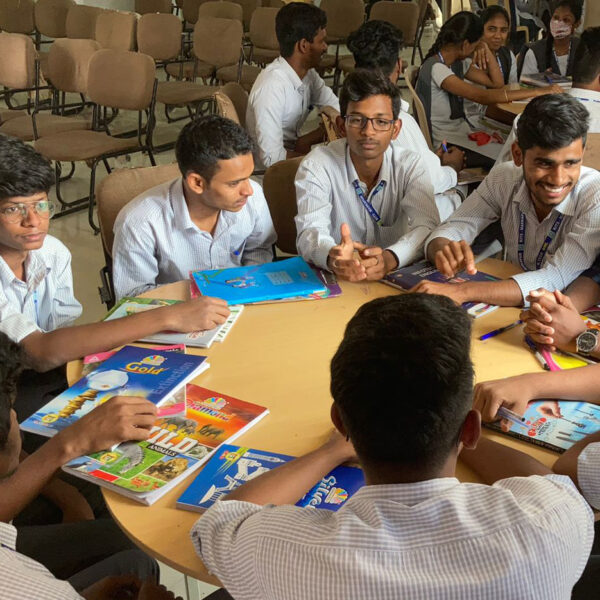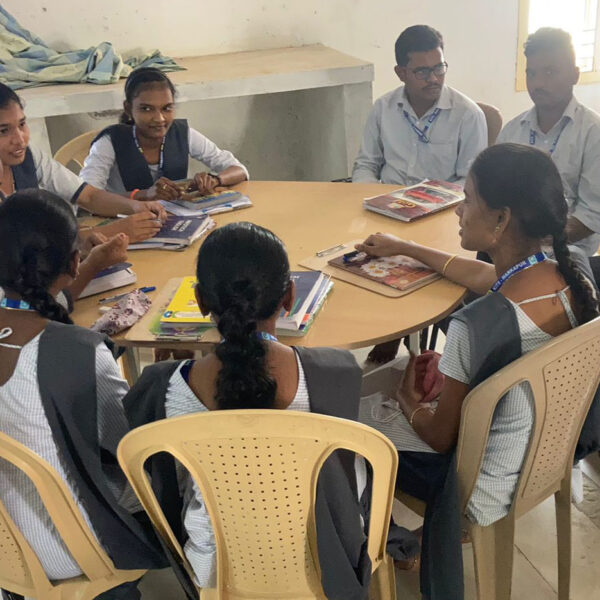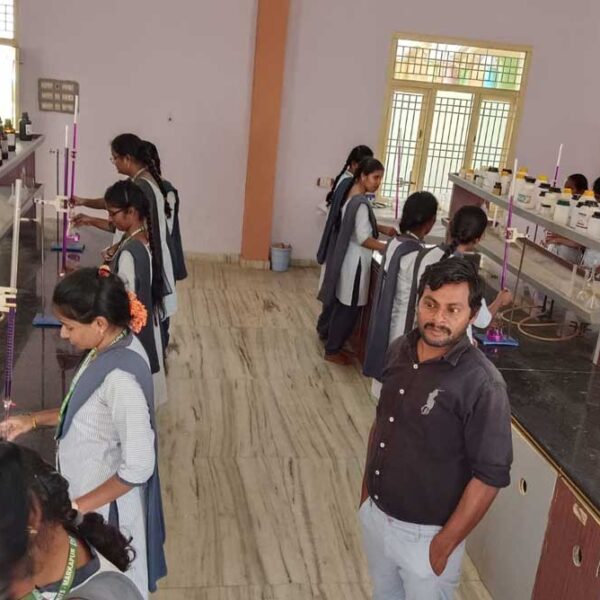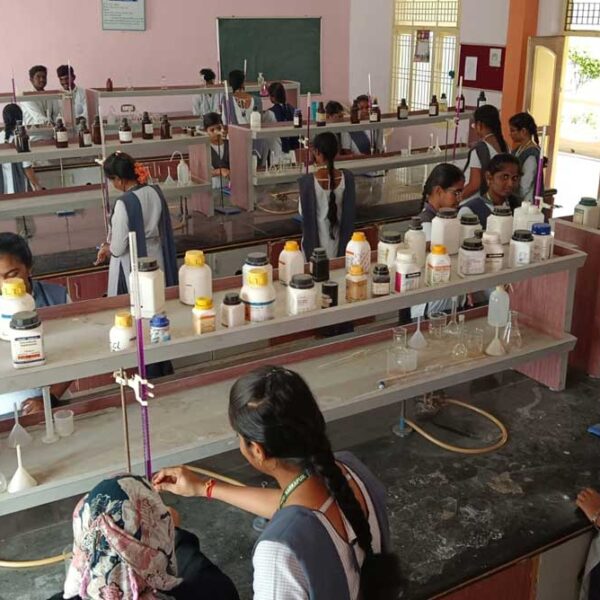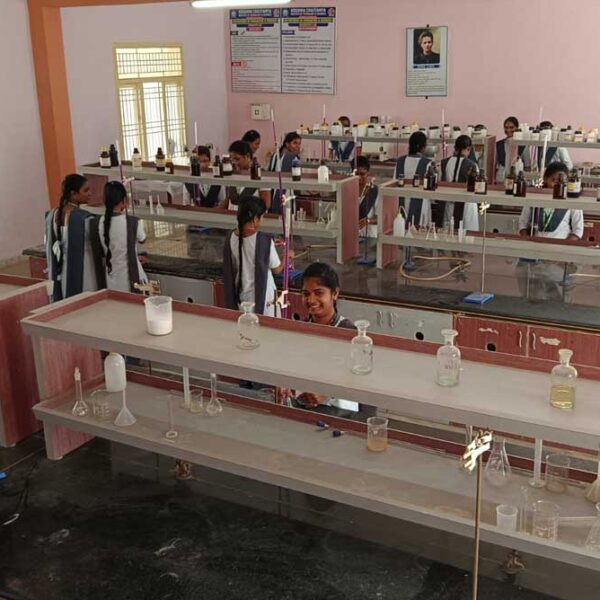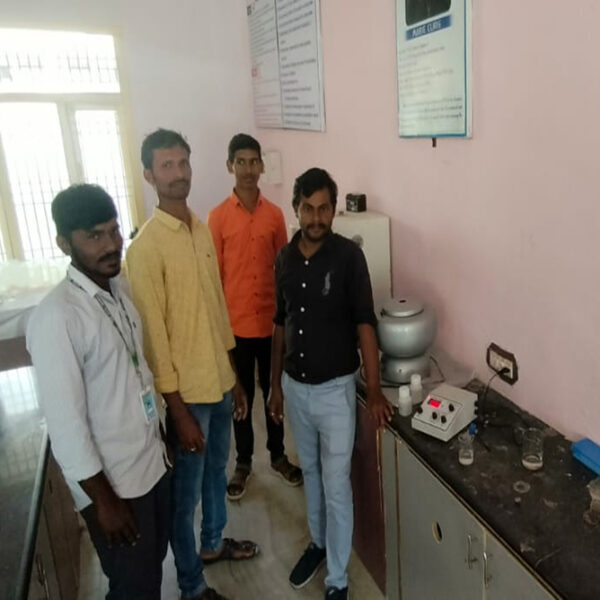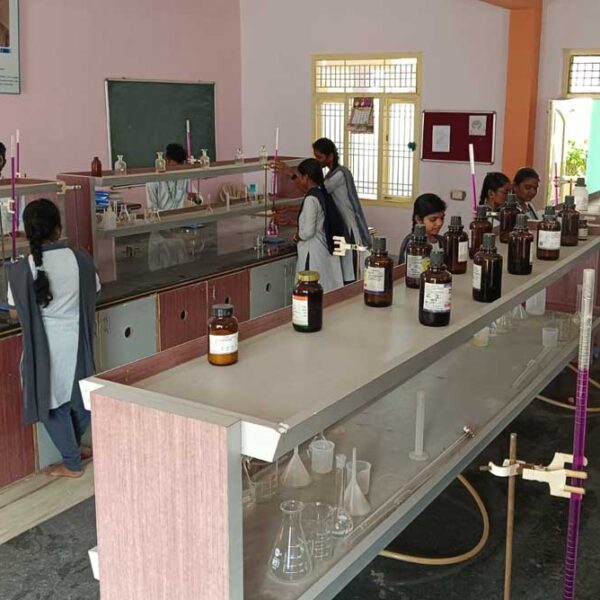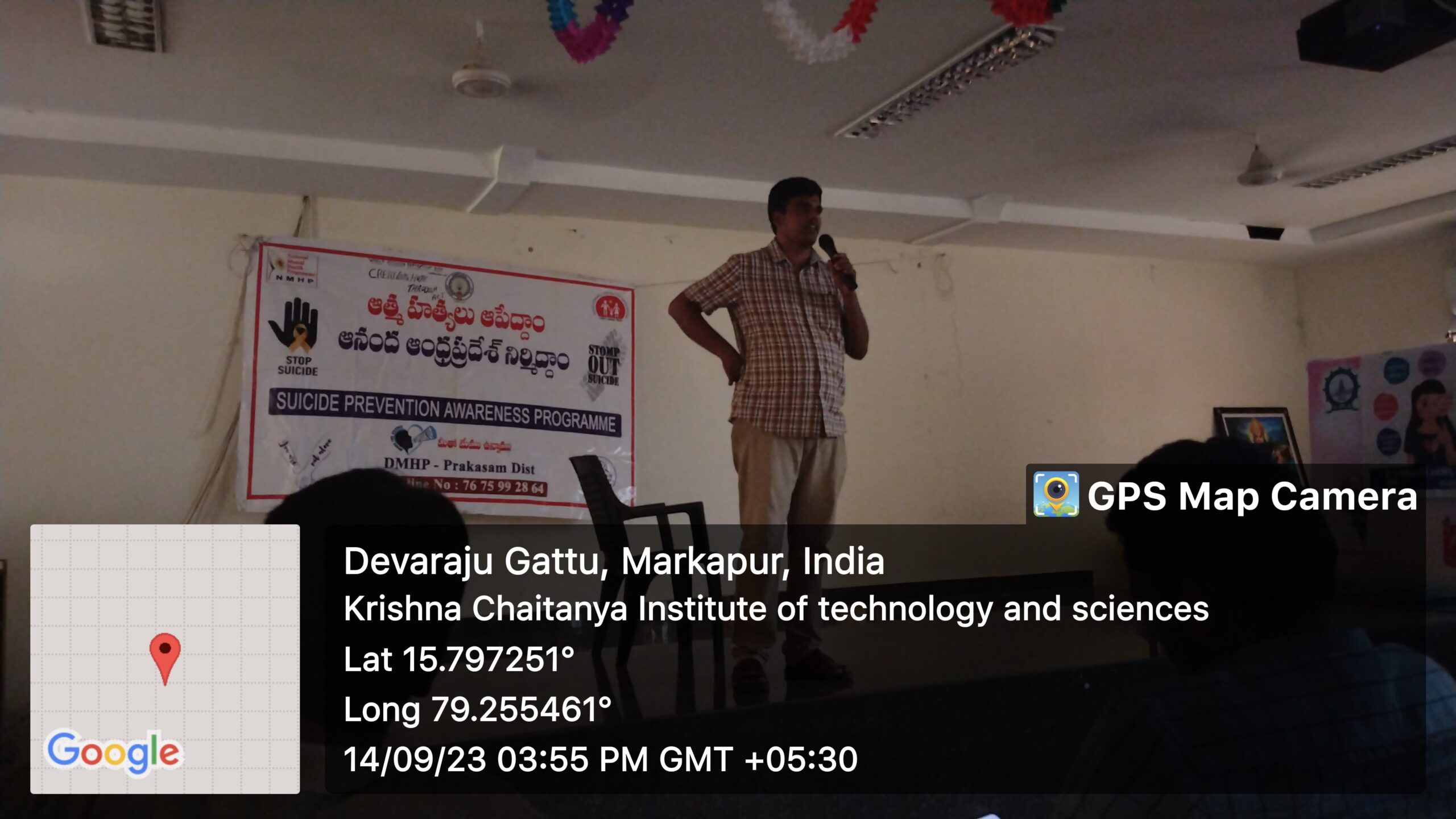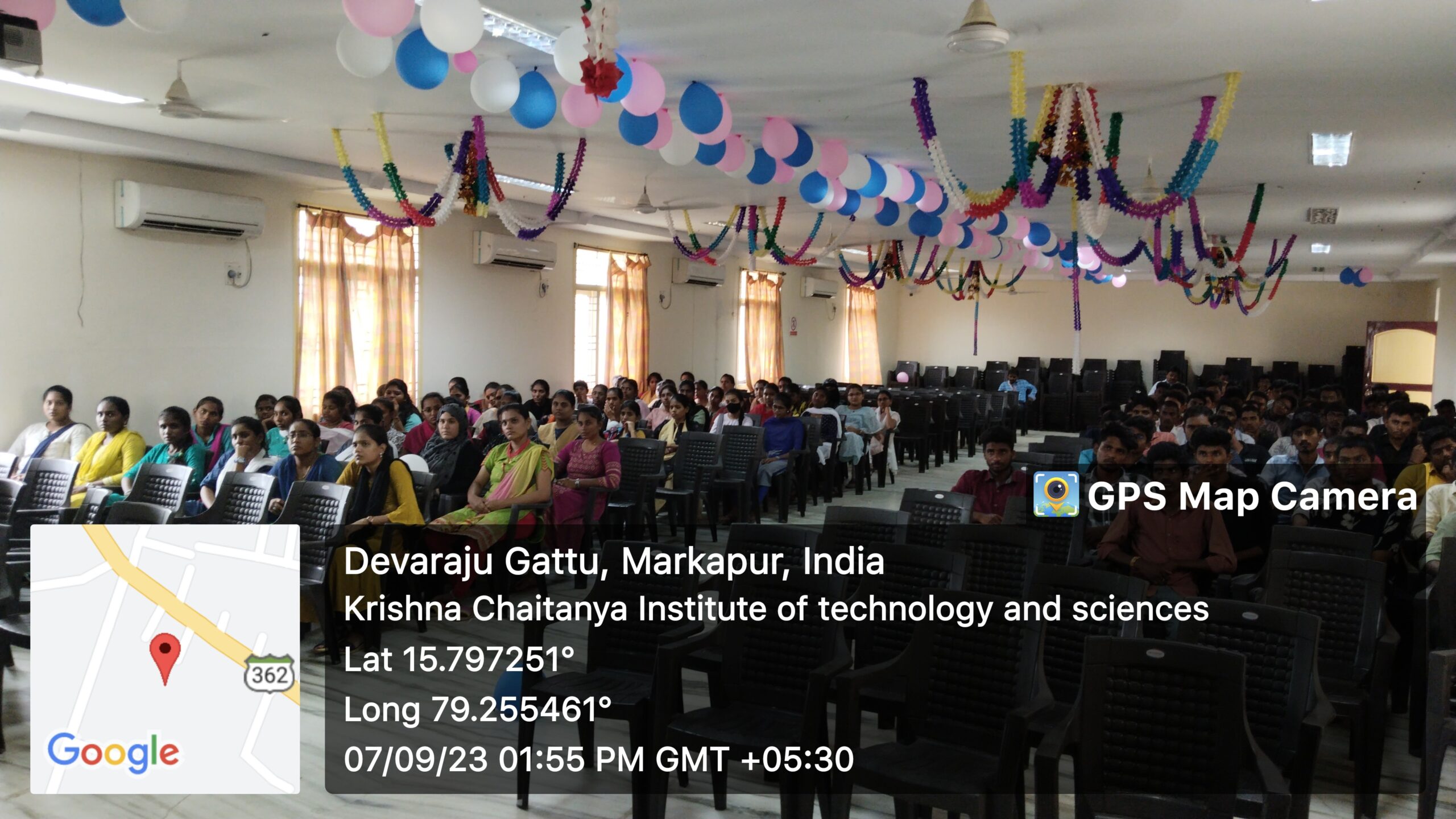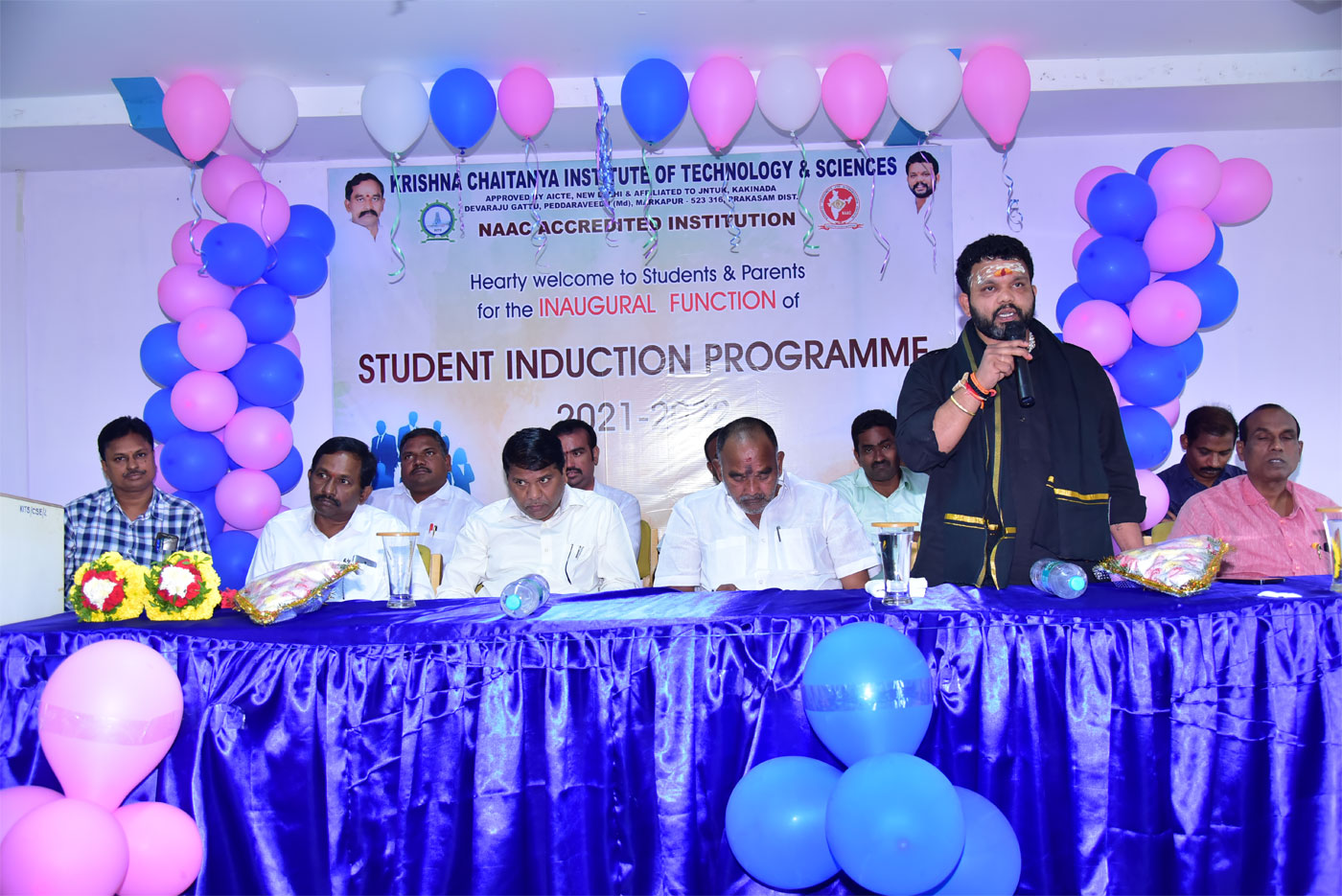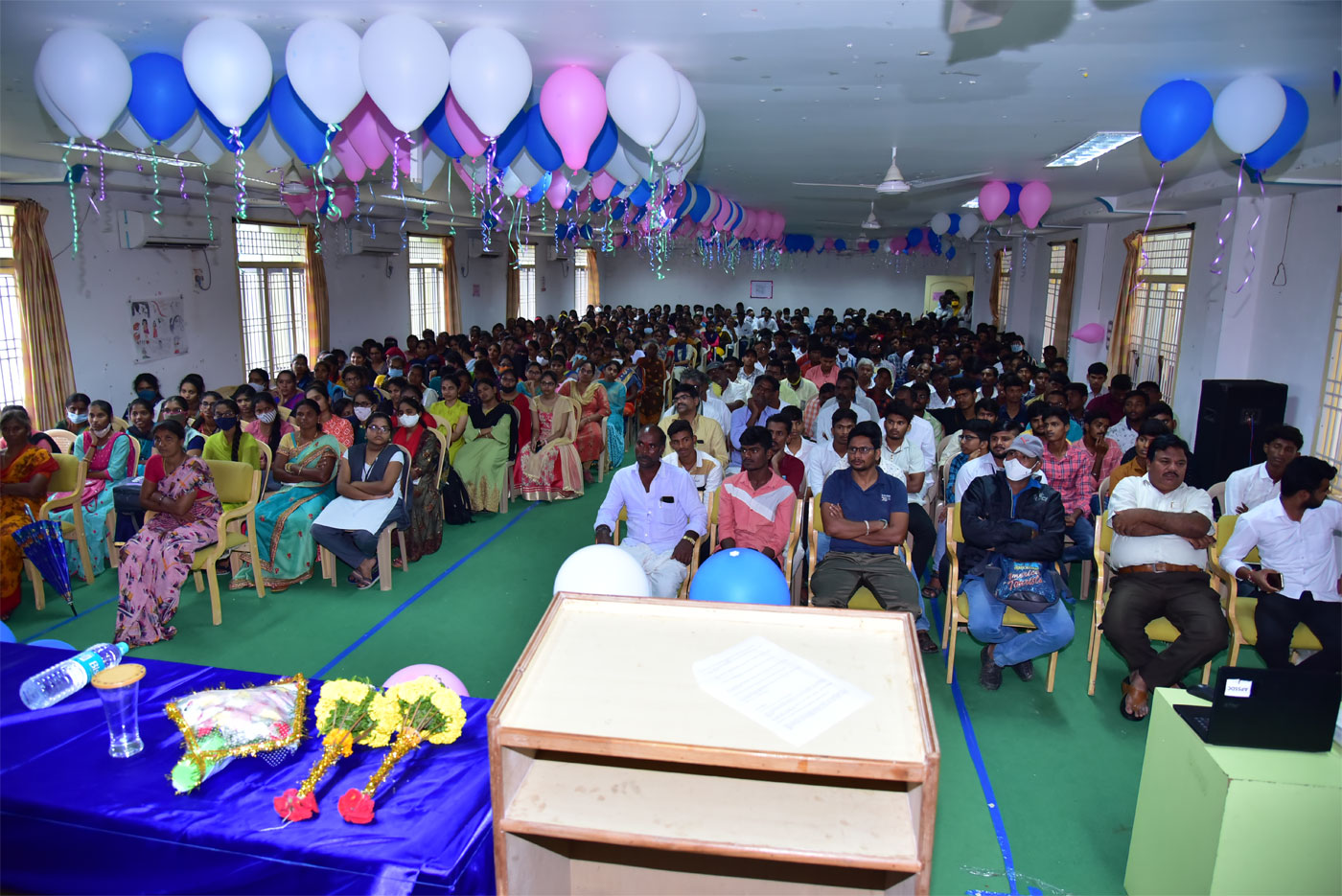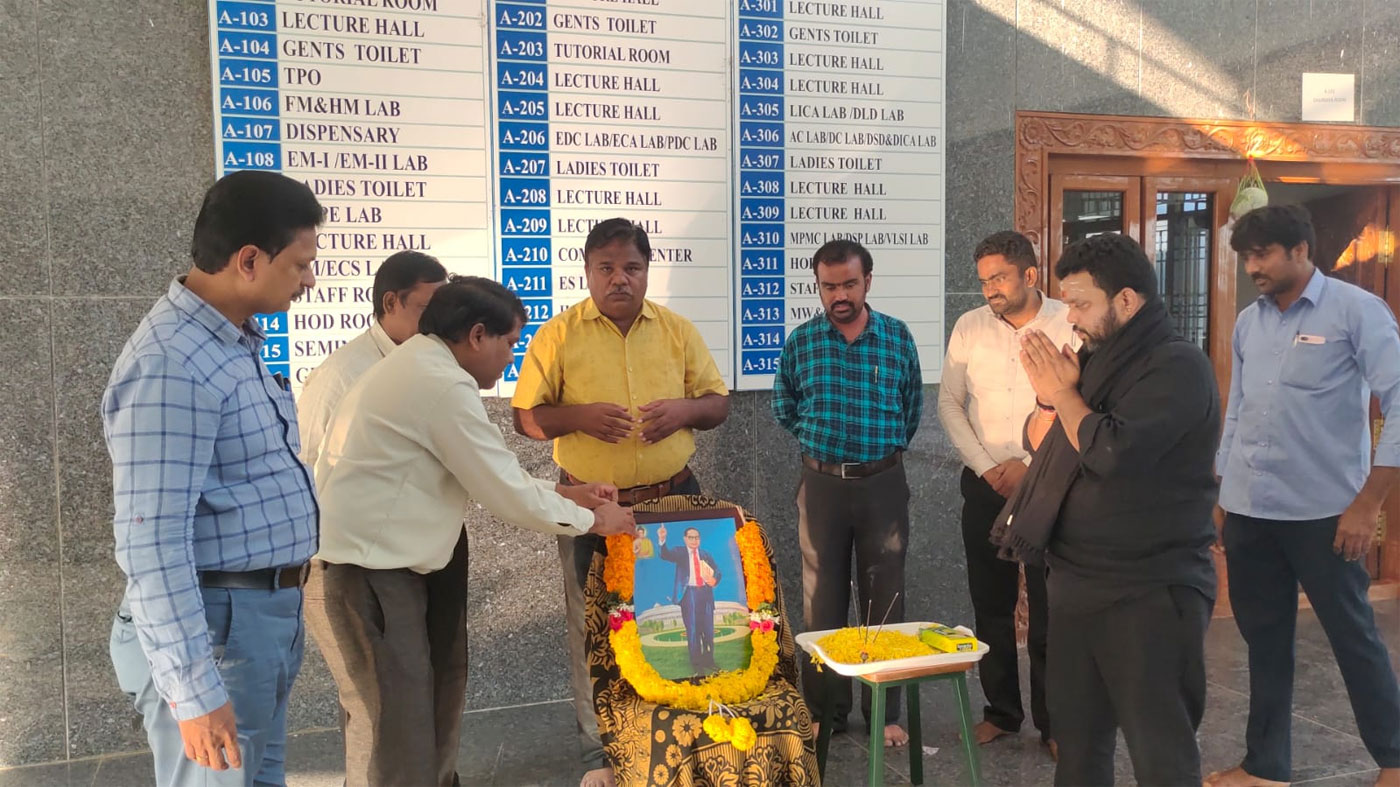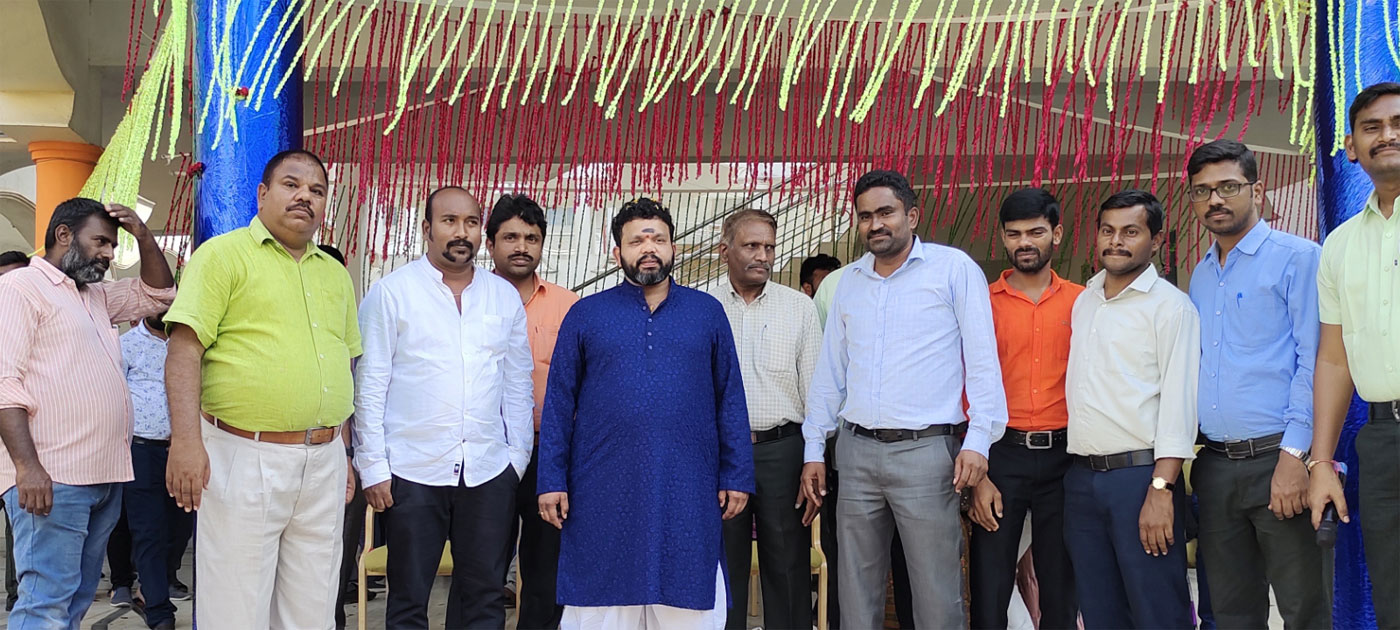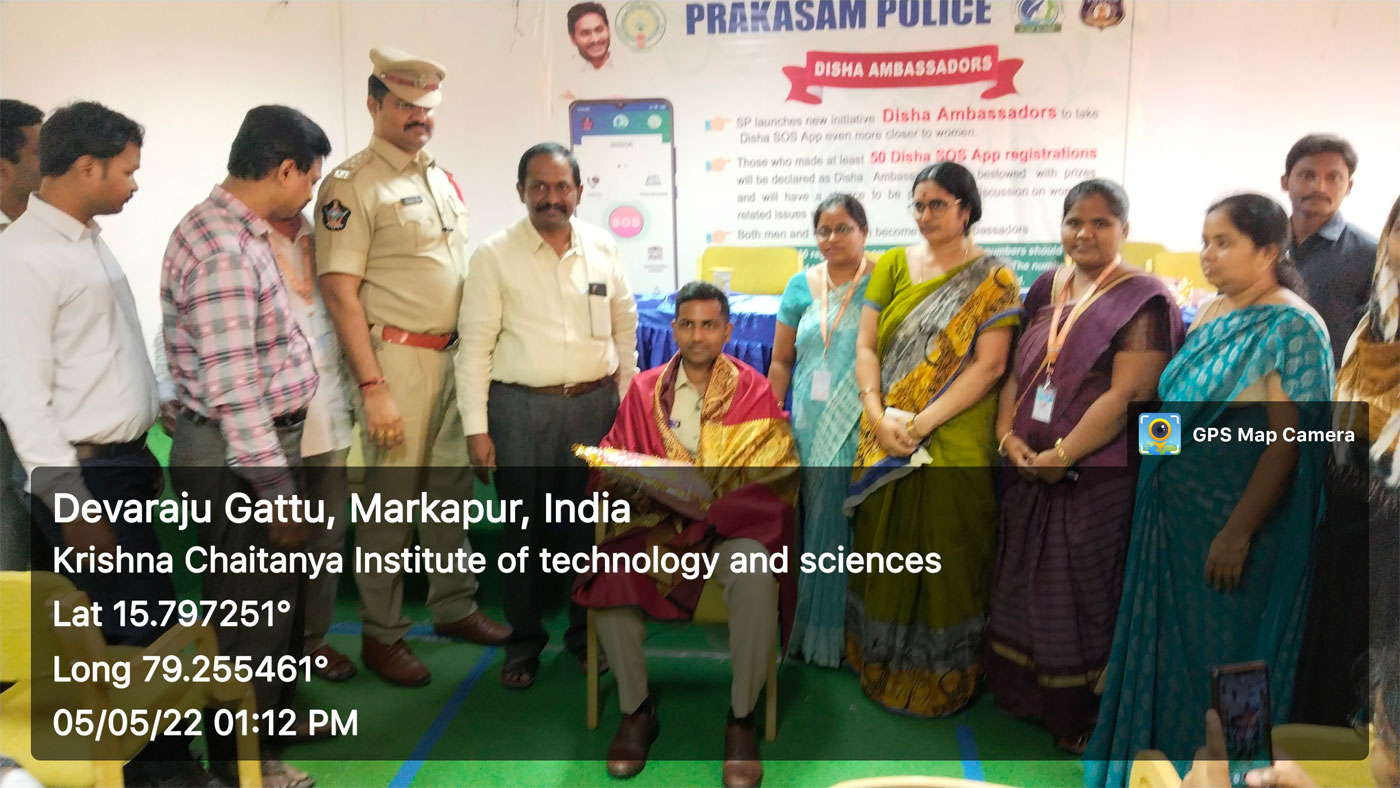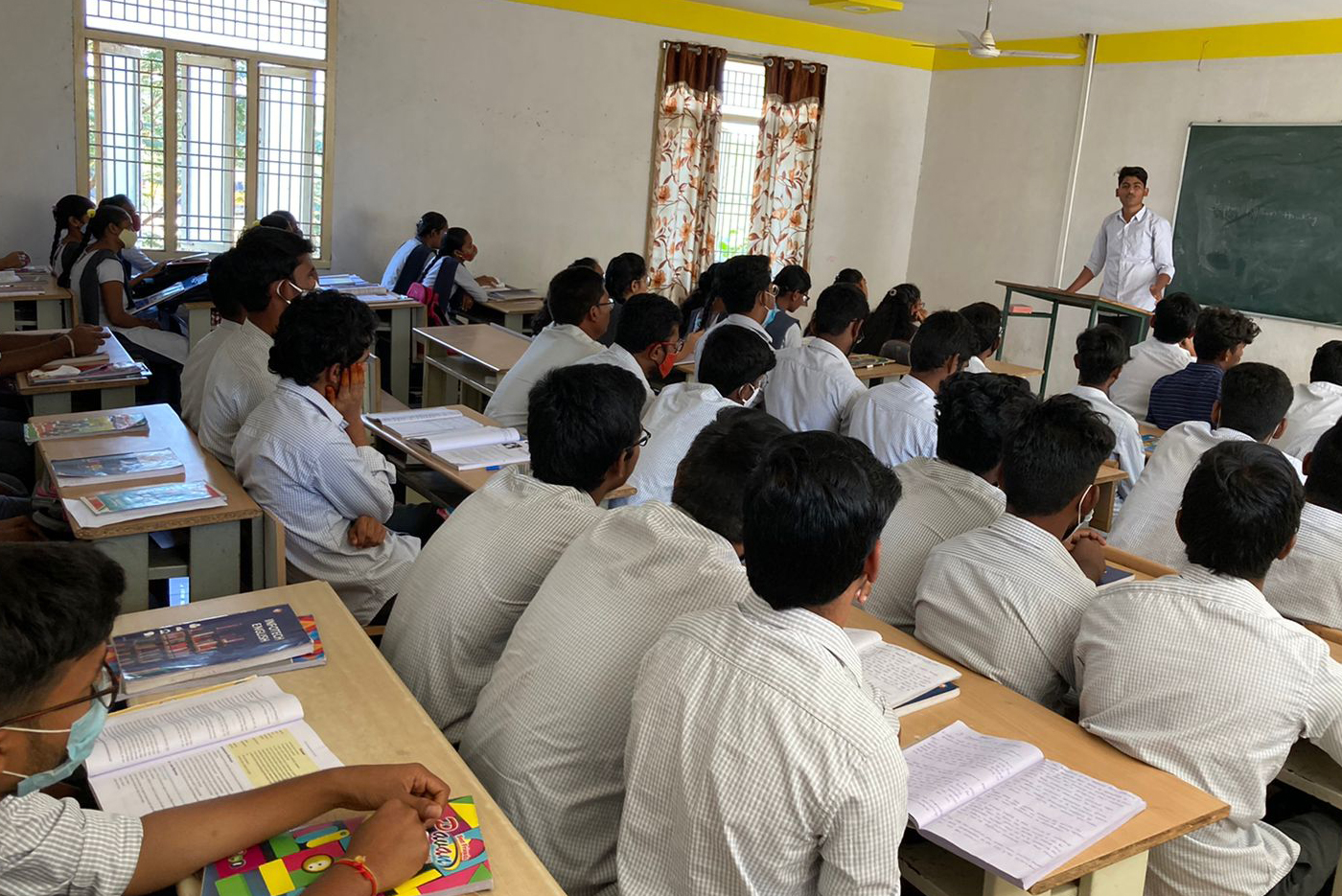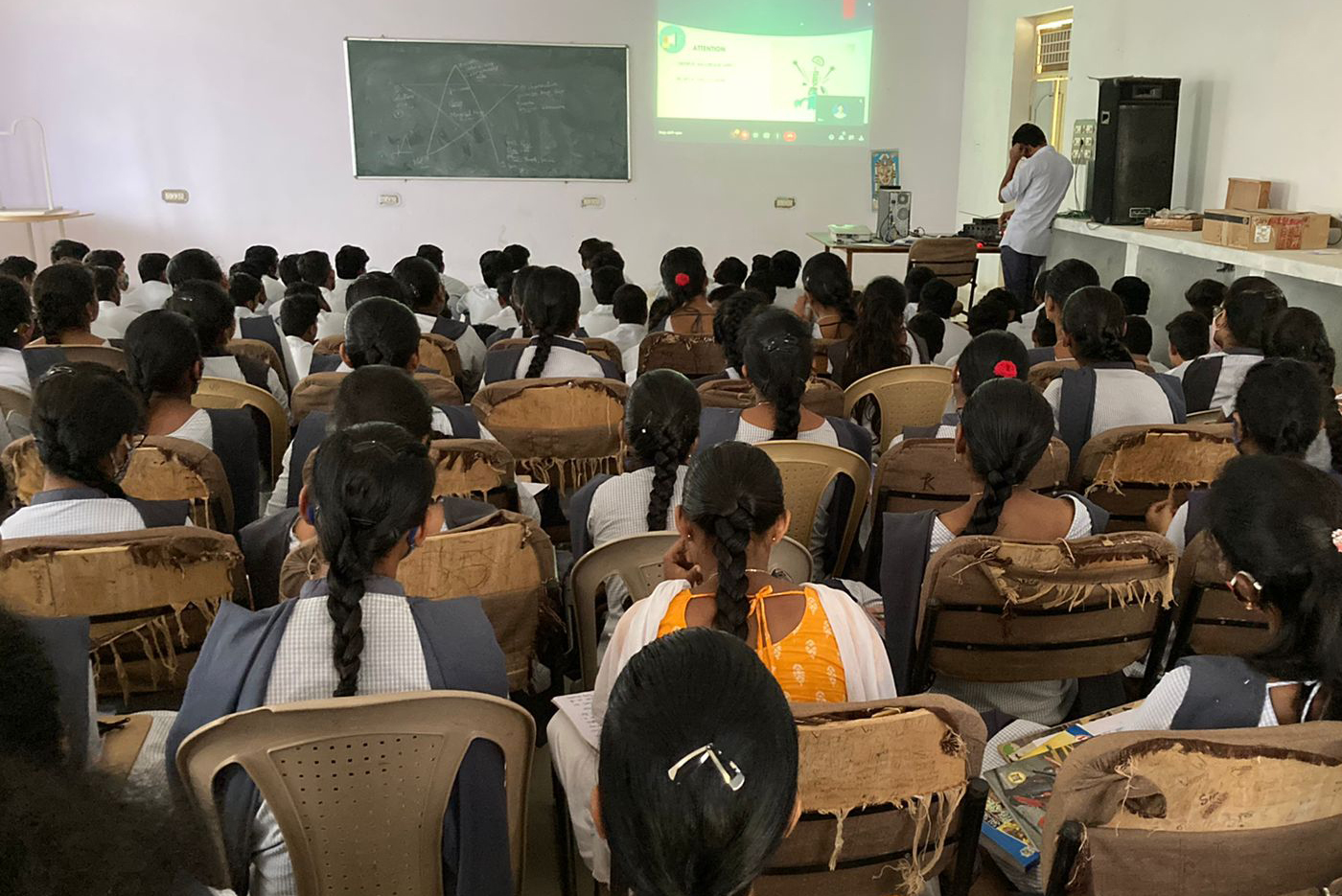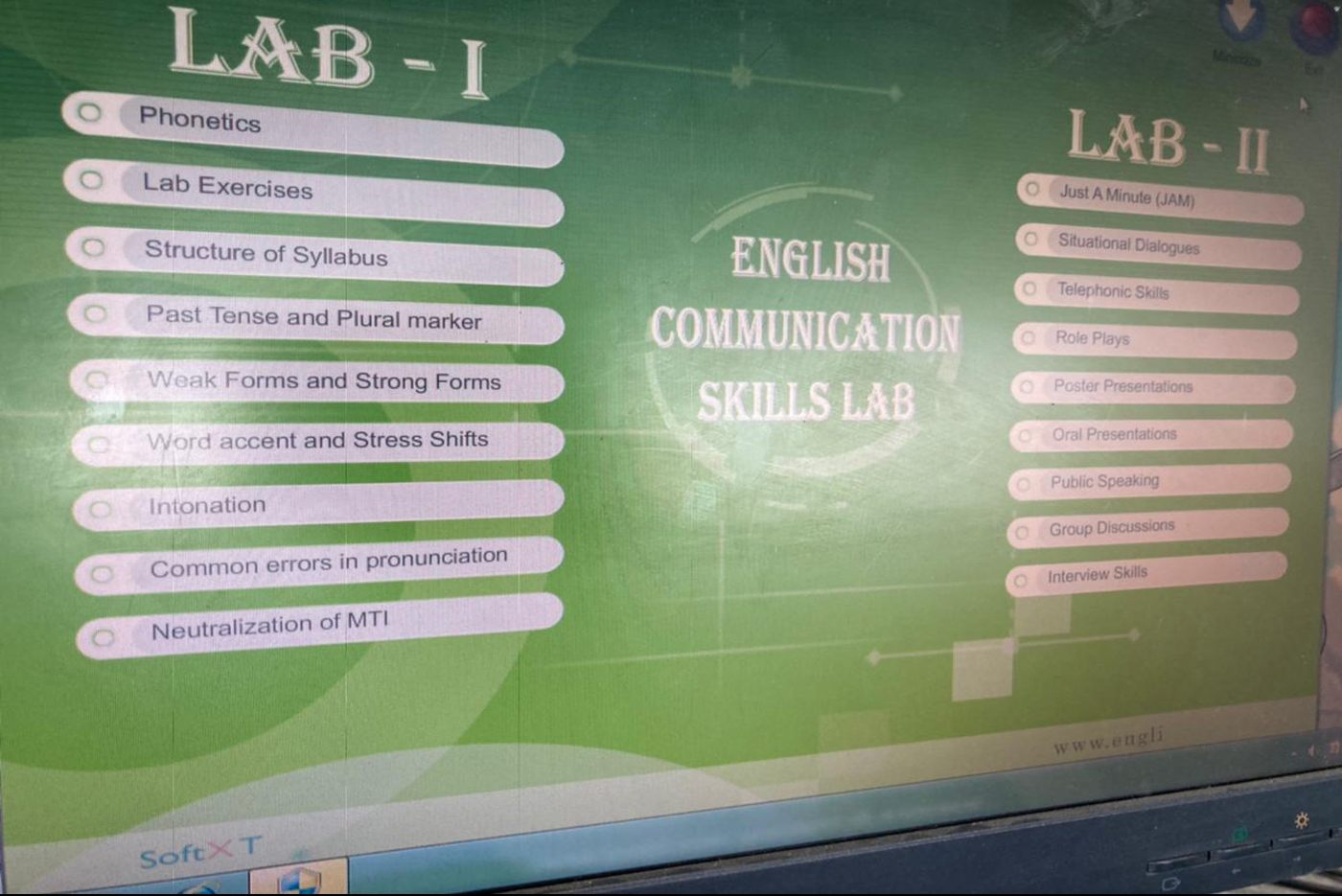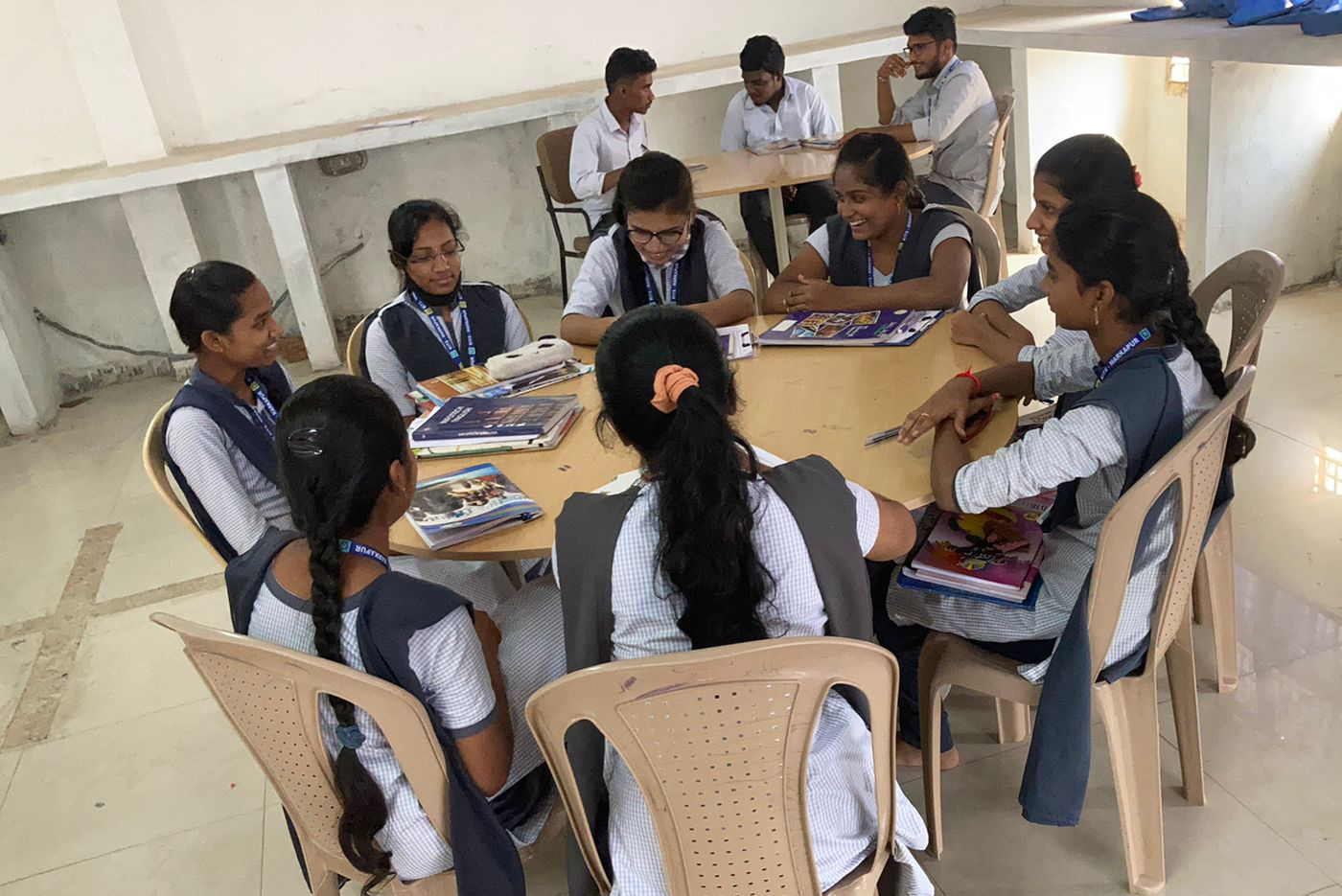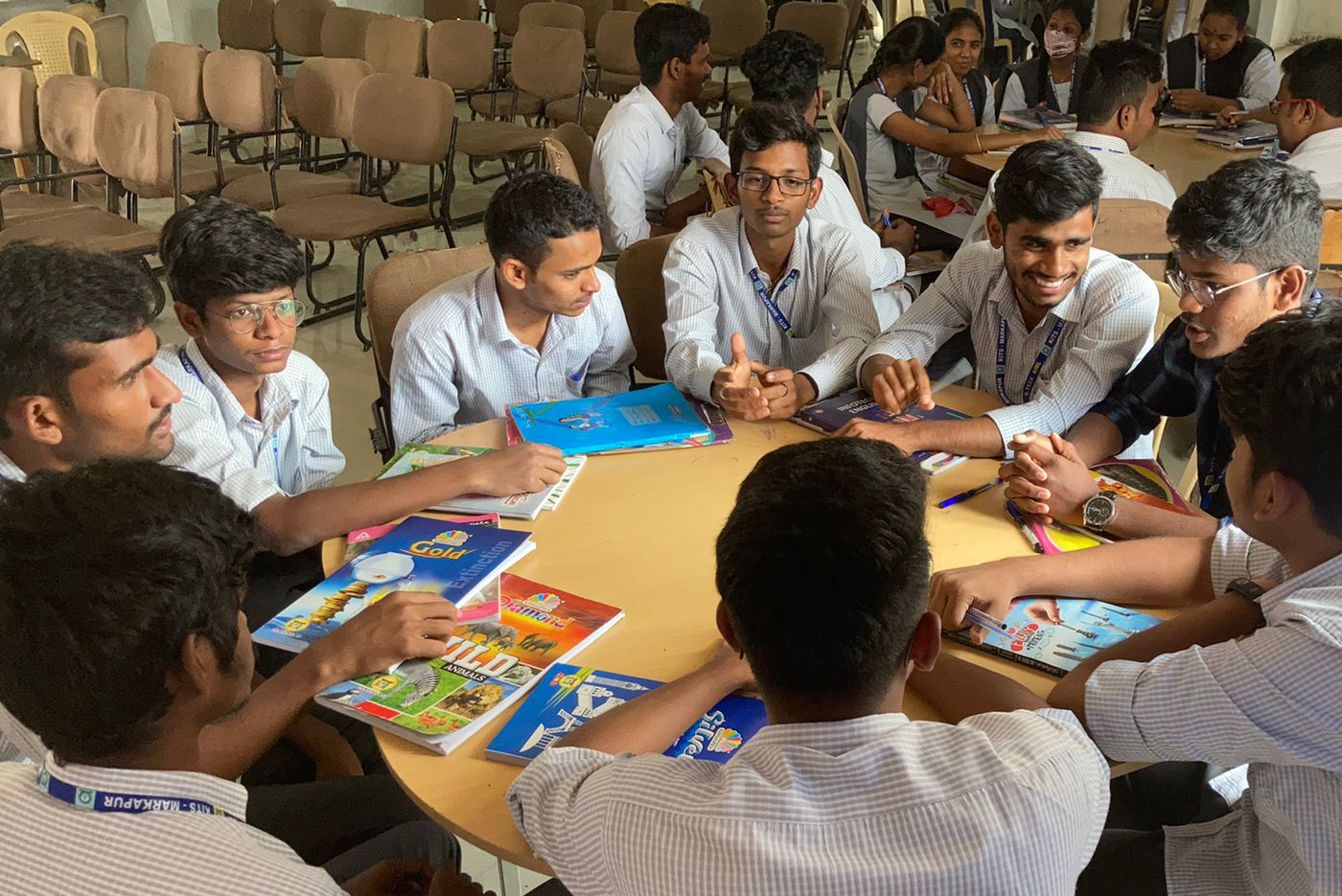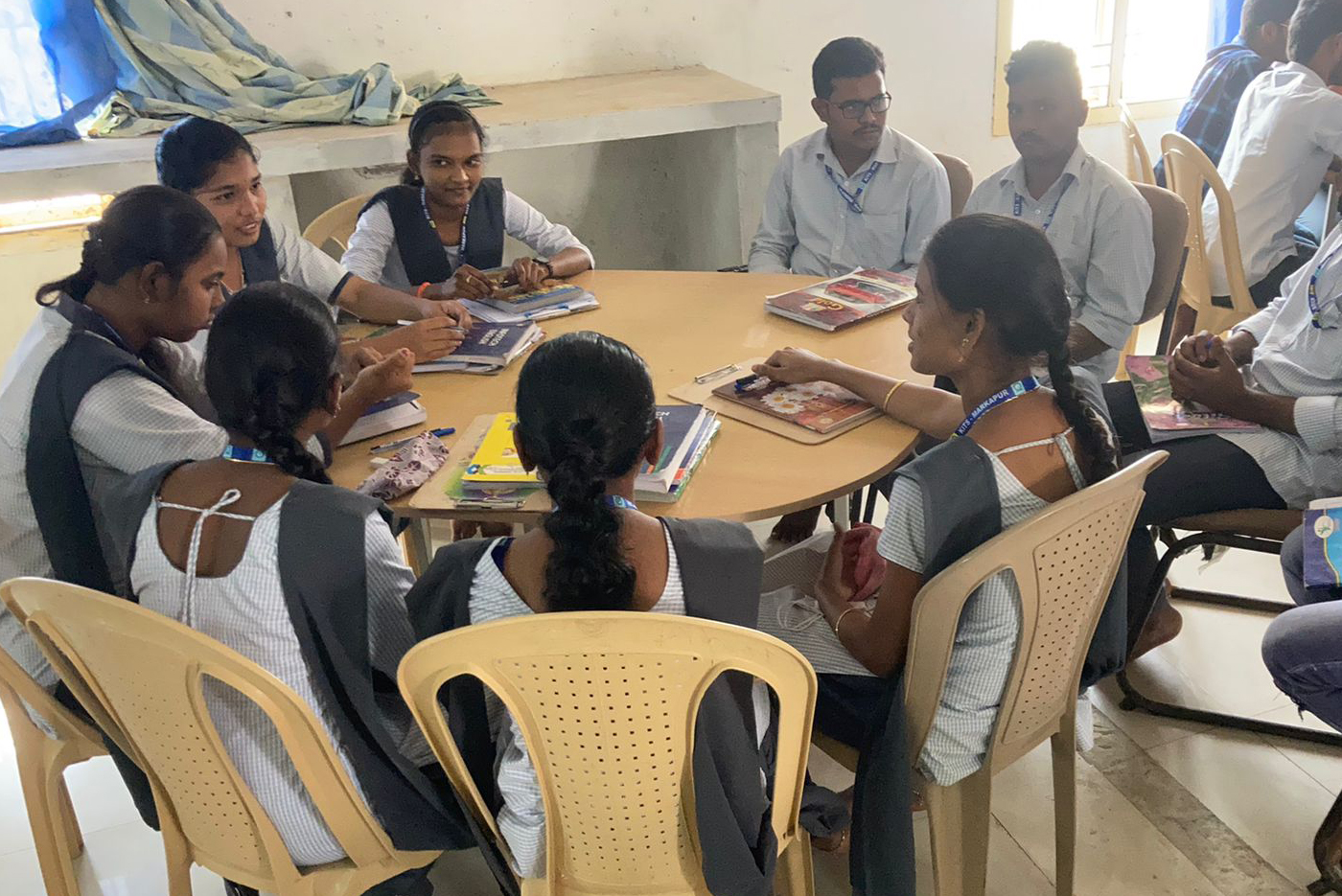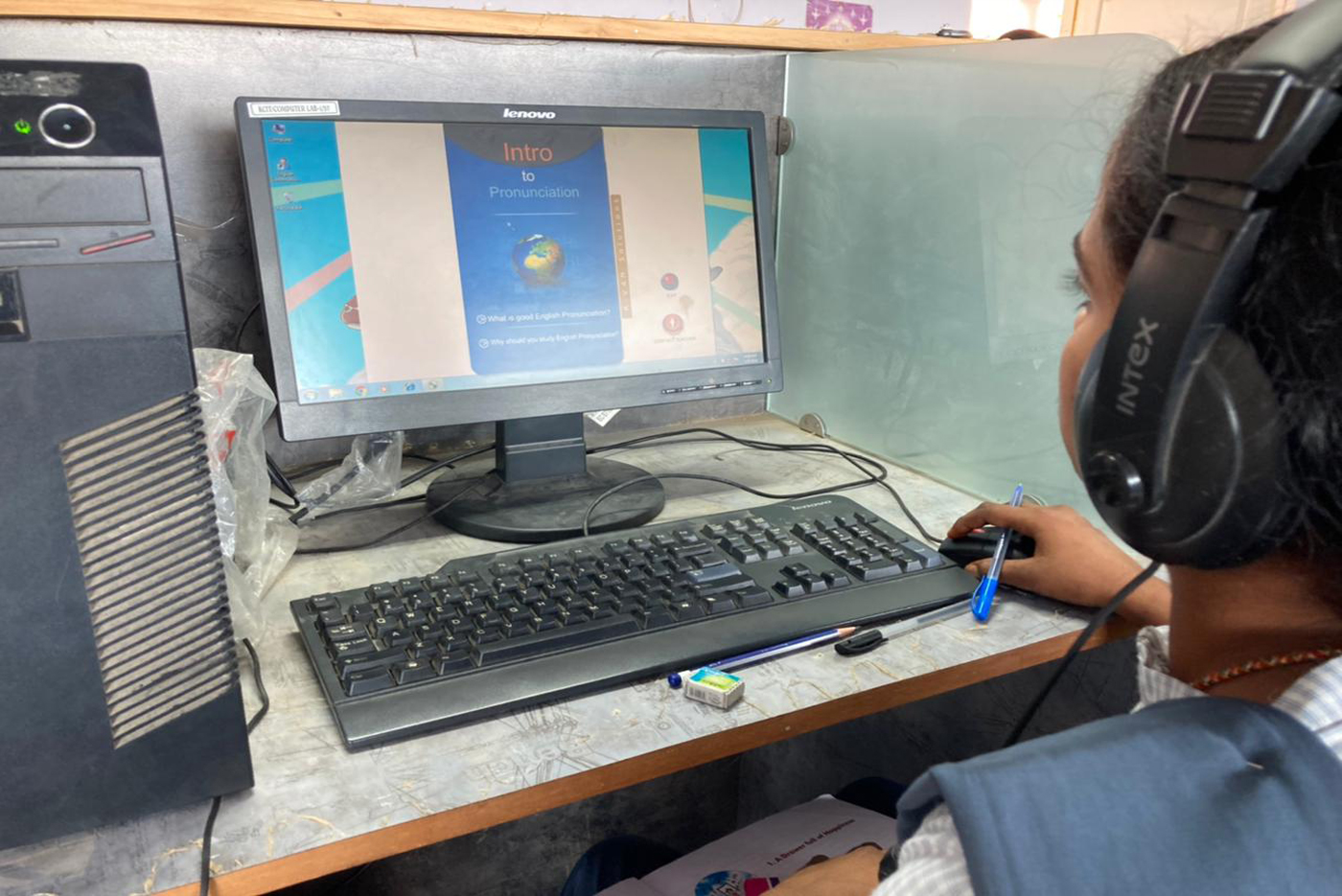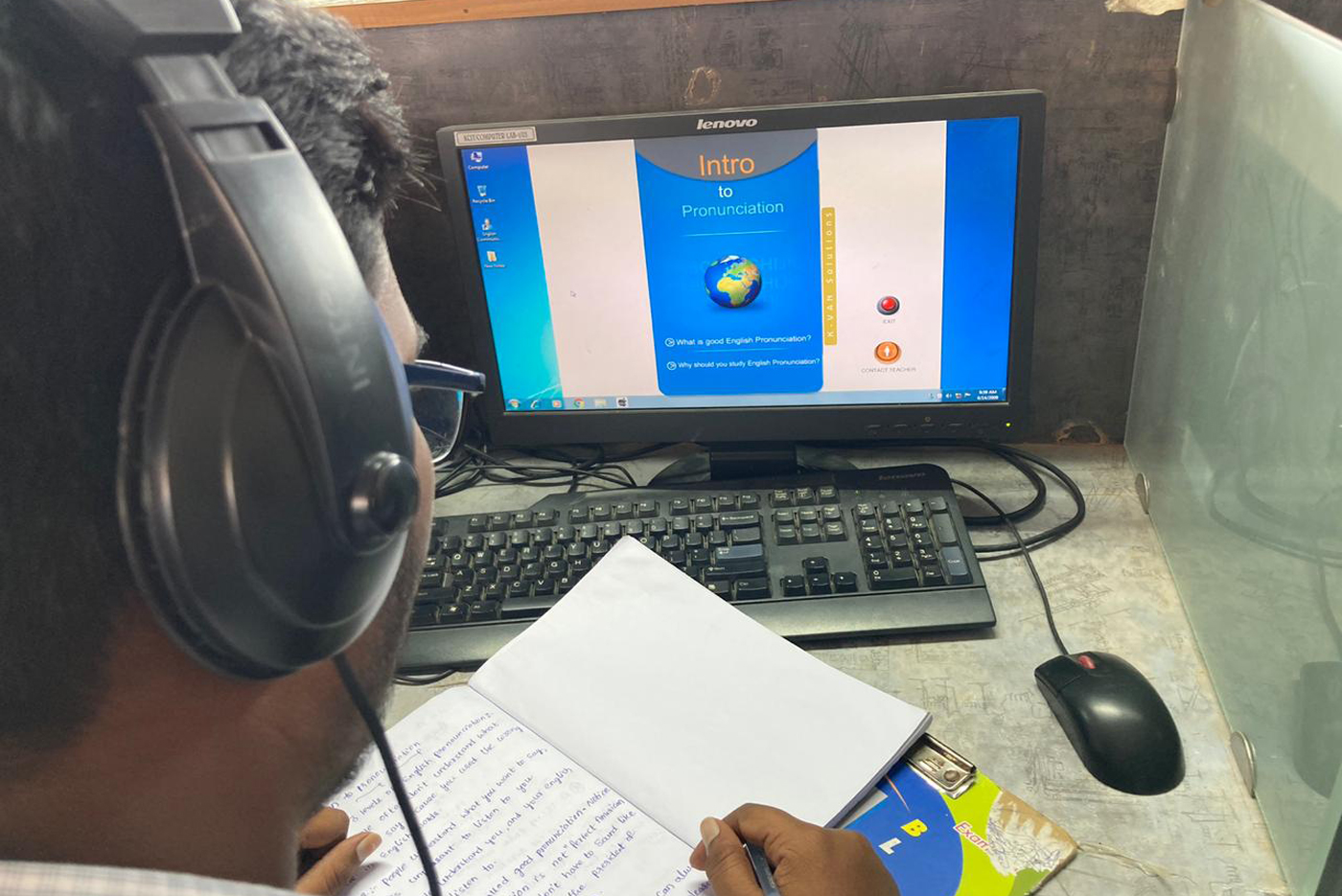H & S Department Vision & Mission
To enrich the Society through education by generating globally competent manpower that can make an honest living in the country or outside and capable of contributing to the socio-economic development and welfare of the society.
The department aims at promotion growth of the students making them be the ‘pioneers’ in their chosen fields.
The Basic Sciences and Humanities department at the KITS comprises 23 faculty members who teach English, mathematics, physics, and chemistry. Mr. P. Rama Mohan, Associate professor of Mathematics, is the head of the department. We the faculty members are sufficiently qualified and well experienced. We have a track record of getting good pass percentage for our students. We are famous among the parents not only our teaching but also our care for our students. The objective of our department is to make our students learn the basics of the engineering subjects successfully and the communication skills in English so that they get confidence that they will be able to complete their engineering course successfully and create a better future for themselves.
PROGRAM OUTCOMES
PO1 :- Engineering knowledge: Apply the knowledge of mathematics, science, engineering fundamentals, and an engineering specialization to the solution of complex engineering problems.
PO2 :- Problem analysis: Identify, formulate, review research literature, and analyze complex engineering problems reaching substantiated conclusions using first principles of mathematics, natural sciences, and engineering sciences.
PO3 :- Design/development of solutions: Design solutions for complex engineering problems and design system components or processes that meet the specified needs with appropriate consideration for the public health and safety, and the cultural, societal, and environmental considerations.
PO4 :- Conduct investigations of complex problems: Use research-based knowledge and research methods including design of experiments, analysis and interpretation of data, and synthesis of the information to provide valid conclusions.
PO5 :- Modern tool usage: Create, select, and apply appropriate techniques, resources, and modern engineering and IT tools including prediction and modelling to complex engineering activities with an understanding of the limitations.
PO6 :- The engineer and society: Apply reasoning informed by the contextual knowledge to assess societal, health, safety, legal and cultural issues and the consequent responsibilities relevant to the professional engineering practice.
PO7 :- Environment and sustainability: Understand the impact of the professional engineering solutions in societal and environmental contexts, and demonstrate the knowledge of, and need for sustainable development
PO8 :- Ethics: Apply ethical principles and commit to professional ethics and responsibilities and norms of the engineering practice.
PO9 :- Individual and team work: Function effectively as an individual, and as a member or leader in diverse teams, and in multidisciplinary settings.
PO10 :- Communication: Communicate effectively on complex engineering activities with the engineering community and with society at large, such as, being able to comprehend and write effective reports and design documentation, make effective presentations, and give and receive clear instructions.
PO11 :- Project management and finance: Demonstrate knowledge and understanding of the engineering and management principles and apply these to one’s own work, as a member and leader in a team, to manage projects and in multidisciplinary environments.
PO12 :- Life-long learning: Recognize the need for, and have the preparation and ability to engage in independent and life-long learning in the broadest context of technological change.
H & S Departments
The Department of Humanities offers Communicative English in the I- Semester as well as II- Semester it is there for CSE branch I- Sem and AI&ML and also ECE branches for II-Semster Students. It also offers Communication Skills, Professional English, Employability Skills and Soft Skills Development courses for the II year and III year B.Tech. Students. It also offers Special Coaching classes for the Vernacular Medium Students and Remedial Classes for Arrear Students and Communication Skills for II Year B.Tech. Lateral entry students after college hours. A modern language laboratory enables the final year students to perform well in GRE, TOEFL, GMAT and other competitive examinations. This multimedia lab installed with necessary software to improve their LWRS (Learning, Writing, Reading, Speaking) skills, also helps them to hone their communication skills. The department prepares students to excel in various competitions (both co-curricular and extracurricular) conducted by other institutions. The department is embellished with 4 faculties with one doctorate.
The Department of Mathematics is the mother of scientific and engineering courses. Therefore special attention is paid for the development of basic mathematics skills required for technical curriculum. The teachers spot mathematical talents among the students and encourage them to take part in seminars, to develop problem solving skills and complete in various intercollegiate mathematical competitions. The department is embellished with 7 faculties out of them 1 is doctorate.
The Department of Physics is established to support the undergraduate Programs of our institution. The department is well equipped with modern experimental setups such as Laser, Fiber optics, general physics and thermal physics in par with the university curriculum and provide ample space for young student’s fraternity to achieve high standard of understanding and learning. The department is embellished with 4 faculties. On the theoretical side, the curriculum is focus on the recent advancements and developments in the applied physics, Nano Technology, optical materials, Material Science and their demand in applications.
The Department of chemistry is recognized to support the undergraduate Programs of our institution. The Chemistry department has a well-equipped, more spacious and good ventilated laboratory. The department is embellished with 4 faculties out of them 1 is doctorates. As a result, many books and research papers are published in reputed international and national level science journal from our department. Apart from that our faculties also supports the UG students in their projects, encouraging them in writing articles to publish in research journals and to present them in national and international level conferences. On the theoretical side, the curriculum imparts basic chemistry and knowledge in various fields in Water Technology, Electro chemistry & Corrosion, Chemical kinetics, Surface chemistry, Phase Rule & Alloys, Fuel & combustion and Environmental Studies.
LAB PHOTOS
Course Details
The Department of Basic Sciences & Humanities (S&H), KITS, Markapur, was established in the year 2008 with a modest intake of 200 students. Over the years it has grown by leaps and bounds and presently offers the B.Tech courses like CSE, CSE-AI, CSE-AI&ML, ECE and CIVIL with a sanctioned intake of 420 students. KITS is affiliated to Jawaharlal Nehru Technology University (JNTUK), Kakinada Andhra Pradesh. The Department is vigorously undertaking research and development activities in emerging thrust areas, introducing new innovative courses based on the industry needs. The Department has contributed substantially to the NAAC accreditation of KITS with B in the year 2015.
INTAKE : 420
COURSE DURATION : 1st year
COURSE CREDITS : 160
TOTAL SEMESTERS : 2
Faculty Details
S.NO | DEPT | NAME OF THE FACULTY | Designation | Qualification | Subject | Experience |
1 | H&S | Mr.PARISANENI RAMA MOHAN | Assoc. Professor & HOD | M.Sc, M.Phil | MATHEMATICS | 17 |
2 | H&S | Mr.ANNA VENKATA SRINIVASA RAO | Professor | M.Sc, M.Phil | MATHEMATICS | 38 |
3 | H&S | Mr.BATCHU PRABHAKAR RAO | Professor & A.O | MBA | MBA | 26 |
4 | H&S | Dr.ANNAVARAM VARA PRASAD | Professor | Ph.D | CHEMISTRY | 17 |
5 | H&S | Dr. JANKE V RAMANA REDDY | Assoc. Professor | Ph.D | MATHEMATICS | 12 |
6 | H&S | Dr.PALLE MANOHAR | Assoc. Professor | Ph.D | ENGLISH | 13 |
7 | H&S | Mr.KOTHA KISHORE BABU | Asst. Professor | M.Sc | PHYSICS | 17 |
8 | H&S | Mr.GARRE VENKATESWARLU | Assoc. Professor | MA | ENGLISH | 26 |
9 | H&S | Mr.ALLU LAKSHMI REDDY | Assoc. Professor | M.Sc | MATHEMATICS | 17 |
10 | H&S | Mr.CHINTAKUNTA SIVA LINGA NAGA RAJESWAR | Asst. Professor | MA | ENGLISH | 26 |
11 | H&S | Mr.THAMMINENI SRINIVASULU | Asst. Professor | M.Sc | CHEMISTRY | 16 |
12 | H&S | Mr.PINNIKA KESAVARAO | Asst. Professor | MA | ENGLISH | 13 |
13 | H&S | Mr.RAMAGIRI SAIPRATHAP | Asst. Professor | M.Sc | PHYSICS | 3 |
14 | H&S | Mrs.CHANDALURI .SRAVANI | Asst. Professor | M.Sc | MATHEMATICS | 8 |
15 | H&S | Mr.KHADER NAIK ISRARUL HAQ | Asst. Professor | M.Sc | PHYSICS | 16 |
16 | H&S | Mrs.N.RANI TEJASWI | Asst. Professor | M.Sc | PHYSICS | 14 |
17 | H&S | Mr.M RANGA SWAMY | Asst. Professor | MBA | MBA | 7 |
18 | H&S | Mr.BOCHU VENKATA POLI REDDY | Asst. Professor | M.Sc | MATHEMATICS | 9 |
19 | H&S | Mr.R.NAGARJUNA NAIK | Asst. Professor | M.Sc | CHEMISTRY | 14 |
20 | H&S | Mrs.GADDAM LAKSHMI LAVANYA | Asst. Professor | M.Sc | MATHEMATICS | 3 |
21 | H&S | Mr.VELPULA BALA RANGA SWAMY | Asst. Professor | MBA | MBA | 2 |
22 | H&S | Mr.GONASANI RAMANJANEYULU | Asst. Professor | M.Sc | CHEMISTRY | 2 |
23 | EEE | Mr.BATHULA RAJU | Asst. Professor | M.Tech | EEE | 7 |
S. NO. | NAME OF THE STAFF | DESIGNATION | QUALIFICATION |
1. | Mr. G. Venkata Raghu Rami Reddy | Lab Technician (Physics) | B.Sc. |
PSO's, PEO's, PO's
- PSO1: To improve scientific attitude and to give emphasis on the development of experimental skills, data analysis, calculations, and also on the limitations of the experimental method and data and, results obtained.
- PSO2: To help students in understanding the concepts of Physics.
- PSO3: To underline the strength of equations, formulae, graphs, mathematical tools to tackle the problems.
- PSO4 : To provide the fundamental principles of various branches of chemistry, knowledge and understanding of chemical principles and make them independent for the effective application of it.
- PSOS 5: To facilitate comprehensive knowledge of laboratory skills, especially ‘Microscale Technique’, so that students can prepare for the experimental setup, standard operating protocols for equipments, obtain experimental data and interpretation of it. It is then rationalized and compared theoretical principles.
- PSO6: To instill ability in the students to understand and handle the various issues that may arise related to chemistry.
- PSO7: Understand, formulate and use quantitative models arising in social science, and other contexts.
- PSO8: To be well grounded in the basic manipulative skills level of Algebra, Calculus, Differential Equation, Number Theory,Analysis, LinearAlgebra, Graph Theory .
- PSO9: To develop and understand the value of proof, the single factor that distinguishes mathematics from all other disciplines, and will demonstrate proficiency in writing and understanding proofs.
- PSO 10: To be able to comprehend and interpret various literary genre (Poetry, Novels, Plays, Short Stories, Essays, and Travelogues).
- PSO 11: To enhance the language skills of the students as well as provide ample opportunities for developing communication, collaboration and critical thinking.
- PSO 12: To understand and reflect on literary trends and analyse the contribution of the British writers and Indian writers in English.
- PSO 13: To develop confidence in the four essential skills of language- Listening, speaking, reading and writing.
- Engaged in successful professional practices in their chosen discipline
- Demonstrated professional and practical knowledge in the fields of Sciences & Humanities
- Demonstrated effective collaboration and communication in the work environment and beyond
- Utilized formal and informal learning opportunities to maintain and enhance excellence and in communication and mathematics
To prepare the students for a successful professional and personal life, make them to have the knowledge about basic Sciences like Mathematics, Physics, Chemistry and English communication skills. Students will be able to solve the mathematical problems and will have knowledge about necessary sciences.
- An ability to identify, formulates, and solve complex engineering problems by applying principles of engineering, science, and mathematics
- An ability to apply engineering design to produce solutions that meet specified needs with consideration of public health, safety, and welfare, as well as global, cultural, social, environmental, and economic factors
- An ability to communicate effectively with a range of audiences
- An ability to recognize ethical and professional responsibilities in engineering situations and make informed judgments, which must consider the impact of engineering solutions in global, economic, environmental, and societal contexts
- An ability to function effectively on a team whose members together provide leadership, create a collaborative and inclusive environment, establish goals, plan tasks, and meet objectives
- An ability to develop and conduct appropriate experimentation, analyze and interpret data, and use engineering judgment to draw conclusions
- An ability to acquire and apply new knowledge as needed, using appropriate learning strategies.
Research Publications
- Combined Effects of Frictional and Joule Heating on MHD Nonlinear Radiative Casson and Williamson Ferrofluid Flows with Temperature Dependent Viscosity J. V. Ramana Reddy
- Heat transfer characteristics on MHD Powell-Eyring fluid flow across a shrinking wedge with non-uniform heat source/sink – J. V. Ramana Reddy
- Magnetohydrodynamic mixed convective flow of micropolar fluid past a stretching surface using modified Fourier’s heat flux model • J. V. Ramana Reddy
- NUMERICAL EXAMINATION OF MHD NONLINEAR RADIATIVE SLIP MOTION OF NON-NEWTONIAN FLUID ACROSS A STRETCHING SHEET IN THE PRESENCE OF A POROUS MEDIUM – J.V. Ramana Reddy
- A Study of the Lacuna of Listening Skill among the High School Students of South Coastal Andhra Pradesh.- 1. Palle Manohar 2. Garre Venkateswarlu
H&S Laboratories
S.No | Room No | Name Of the Laboratory | Area (m2) | Cost (Rs.) |
1. | C204 | English Communication Skills Lab | 191.1 | 7,24,508 |
2. | C108 | Engineering Physics Lab | 191.1 | 5,70,011 |
3. | C112 | Engineering Chemistry Lab | 105.56 | 2,29,149 |
English communication skills laboratory is used to equip the students with communication skills in English and also for the presentation of audio-visual material. Language laboratory materials produced in the college are in the form of DVDs accompanied by print manuals. The lessons provide practice in word accent, rhythm and intonation as well as the correct pronunciation of the vowels and consonant sounds of English.
OBJECTIVES:
Use reading skills (skimming, scanning, summarizing) to comprehend texts.
- Build language competence.
- Identifying ideas and supporting details.
- Use prewriting strategies (brainstorming, clustering to generate ideas, present a point of view, and develop a plan).
- Understand basic academic listening texts. Understand reduced forms in spoken English.
The Engineering Chemistry Lab has a wide range of equipment. The lab is aptly prepared to impart education in Chemistry in a neatly designed, spacious and well-ventilated laboratory with a capacity to accommodate 30 students. It provides students with a practical approach towards the various techniques used in engineering application. Practical awareness is inculcated and students are trained both quantitatively and qualitatively during the lab sessions so that their understanding and problem solving abilities can be enhanced. The Chemistry Laboratory is well equipped with various instruments other than the usual glassware’s & chemicals as per JNTUK syllabus. Major Equipment in Engineering Chemistry Lab are :- Digital Conductivity Meters, Digital potentiometer, Digital PH meter, Electrical Balance, Hot air oven, Bunsen furnaces, Distillation Unit.
OBJECTIVES:
- The objective of the course is that the student will have exposure to various experimental skills which is very essential for an Engineering student.
- The experiments are selected from various area of Chemistry like Complexometric titrations to find Hardness of water, understanding the basic concepts of Electrochemistry like Conductometry and Potentiometry.
Lab Photos
This is the basic science lab which is common for all branches of first year with facilities for the group of 30 students to carry out experiments independently. The lab is well-equipped and enables students to understand the fundamentals of Engineering Physics. Major Equipment in Engineering Physics Lab are :- Newton’s Ring Apparatus, Diffraction Grating, Resolving Power Apparatus, Sonometer, Energy band gap of P-N Junction Diode, Thermister characteristics, Stewart- Gees method, Zenor diode characteristics, Volume resonator, compound pendulum, Torsional pendulum, Numerical aperture of optical fiber, etc….
OBJECTIVES:
- Art of Experimentation: The laboratory provides significant experiences concerned to basic laws of physics with experimental process.
- Experimental and Analysis Skills: The laboratory functions such that a student develops a broad knowledge on skills and tools of experimental physics and data analysis.
- Conceptual Learning: The laboratory helps students to become masters in basic concepts of physics
- Understand and application of Basis of Knowledge in Physics: : The lab enables the student to gain hands-on experience to more clearly understand the relation between inferences based on theory and the outcomes of experiments.
- Collaborative Learning Skills: The laboratory enables the student to develop collaborative learning skills that are crucial to achieve success in many lifelong endeavors by encouraging them to design innovative project based experiments.
